Way back in January when I posted my first Bento Tidbits from Japan article, Jason asked about the availability of ready made bento components. There are many traditional food products that are used in bentos with no or minimal cooking, such as furikake and pickles, but I went looking for things that are usually home made and are available readymade at a regular supermarket. Basically, it’s possible for someone in Japan to assemble a complete bento without cooking anything barely, should they want to, using pre-cooked, pre-packaged foods from the supermarket - and, I guess, call it a homemade bento.
Let’s start with the rice, the basic staple of a Japanese meal. Here are some ready-to-microwave precooked, vacuum packed rice packets. These no-refrigeration needed rice packets are available in the U.S. and elsewhere too. Quite convenient, though rather expensive compared to cooking your own. Besides plain white rice, brown rice and various mixed rices are available.
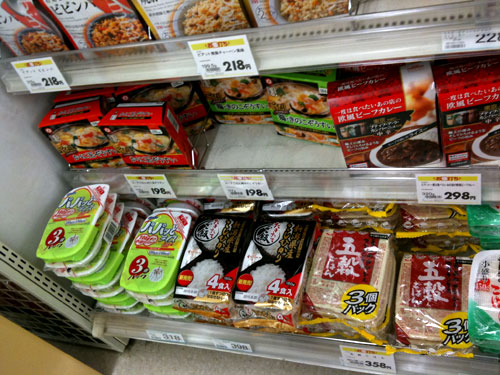
Ready-to-eat fried foods have been around for ages; korokke (croquettes), menchikatsu (breaded and deep-fried hamburger steaks), tonkatsu (fried pork cutlets) and so on. Readymade foods like this are called osouzai (�惣�), and every supermarket and department store food hall has a big section dedicated to them.

Here are some pre-portioned osouzai from the refrigerated section of 7-11 - a packet of meatballs in sauce, and potato salad. (They also have things like stewed chicken and vegetables and braised pork belly.) Each packet is priced at around 100 to 150 yen, and last for a week refrigerated and unopened. Very handy - and not that bad actually.
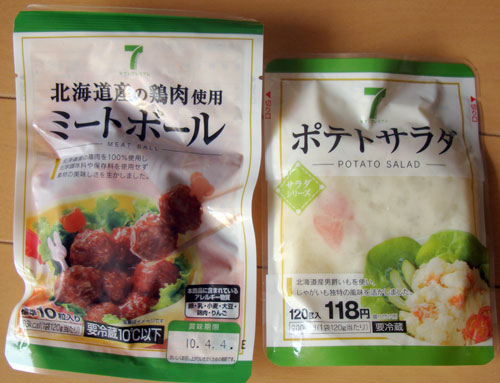
The frozen food section is stacked with all kinds of ready-to-go foods for bentos. Here’s some breaded fried fish with egg, and heat-and-go chicken karaage.
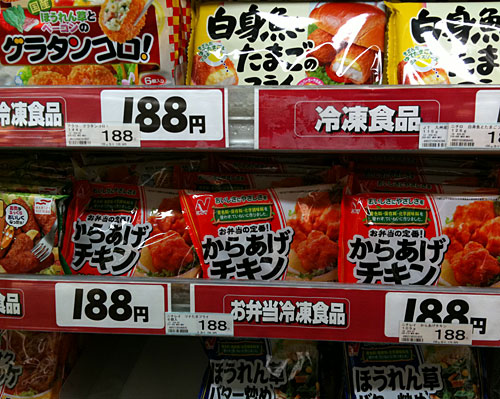
Looser foods come pre-packaged in paper cups. Many don’t even require heating up in the morning - they can be packed frozen in a bento box. Here you see some butter-sautéed spinach and corn, kaki-age (a kind of tempura), yakisoba noodles, and pre-flavored spaghetti, all in ready-to-pack paper cups.
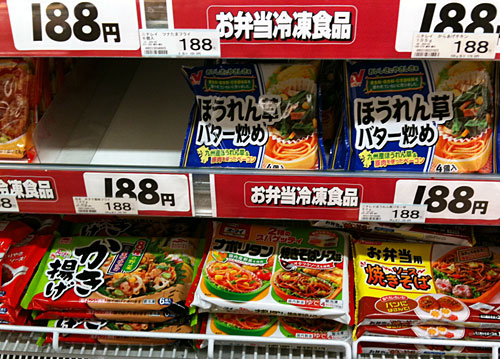
Even healthier vegetable sides come packed this way. Here’s kinpira gobo and stewed hijiki, again just ready to pack and go.
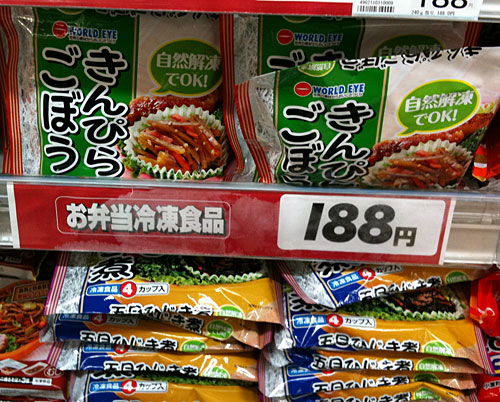
Frozen Spaghetti Napolitan, a favorite with Japanese kids. The serving suggestion on the bottom half of the package says to stuff the pasta into a bread roll. Mmm, double-carbs. (This kind of noodle-stuffed sandwich is quite popular in Japan.)

A creamy gratin in a cup…also ready to pack and go, says the package. Defrosted cold cream sauce…yummy. (Yes I’m being sarcastic.)
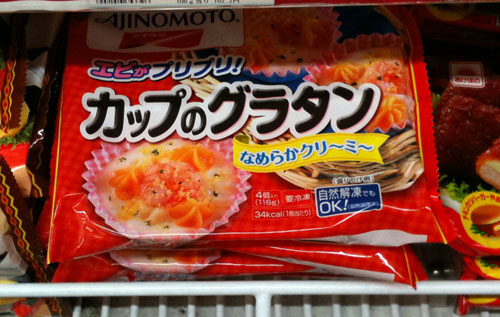
Ready-to-go charaben parts
Even charaben parts are available ready to go. For instance, those tiny cute quail eggs - so fiddly to peel, yes? No worries, you can buy them precooked and packed in water.
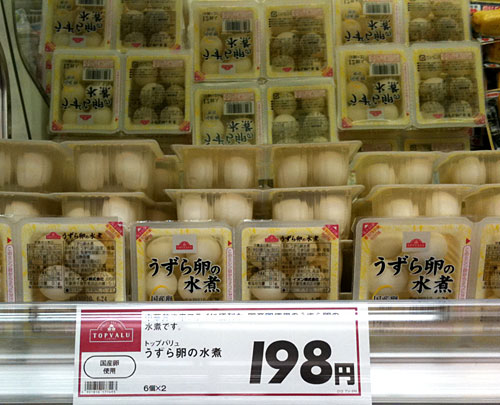
Here’s some cute cheese-and-kamaboko (fish paste) rolls…
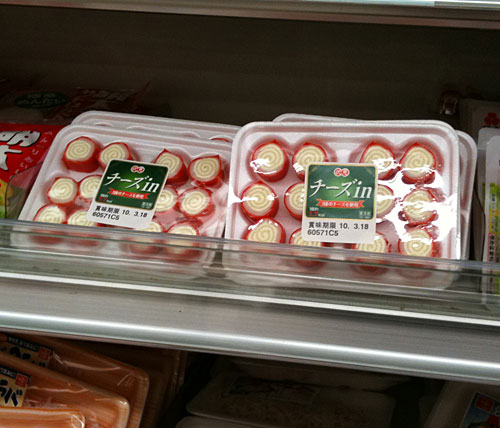
Speaking of kamaboko…how about a kamaboko with Pikachu’s face in every slice? Instant kawaii for your little one’s bento box. (You can see some Minnie Mouse kamaboko on the bottom shelf too.)
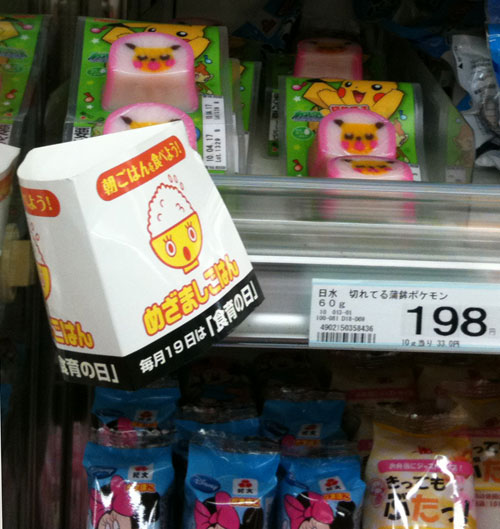
I actually bought one of these decorative kamaboko…one where each slice is a little pig face. The top part even has ears. The taste? Well….
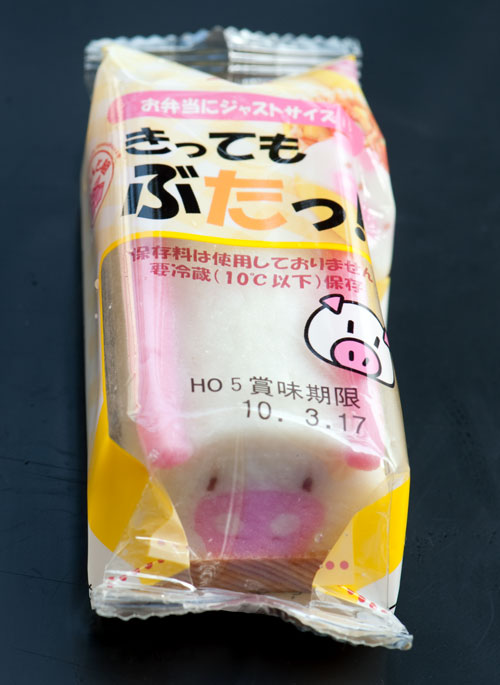
When the kamaboko is sliced, indeed each slice is a little pig face. Aww.
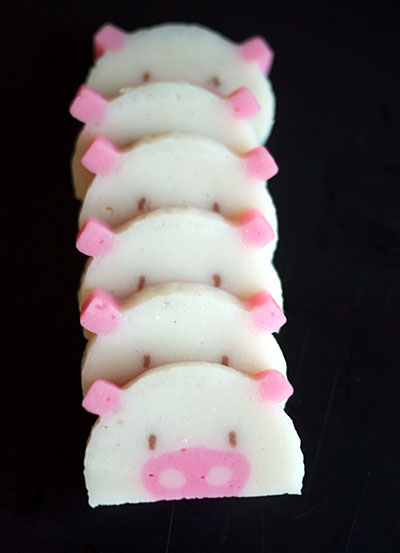
Moving on to another charaben standby, tiny sausages. These ones (which I previously uploaded to flickr) are just plain sausages with clever, Hello Kitty packaging….

These ones go a step further: the casing is printed with an image of Kamen Rider, an old time favorite superhero, especially with boys. (You are supposed to only cook them carefully on the other, unprinted side, to preserve the printed image.)

Hmm, these tiny sausages remind me of the ones I’ve seen in a certain American lunch product…
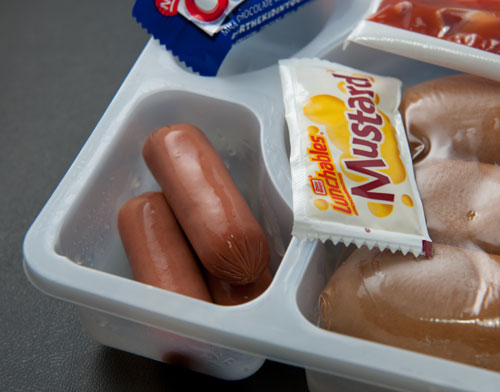
But the ultimate charaben wee sausage has to be the tako (octopus) wiener. And, yes, they too are available ready-made.
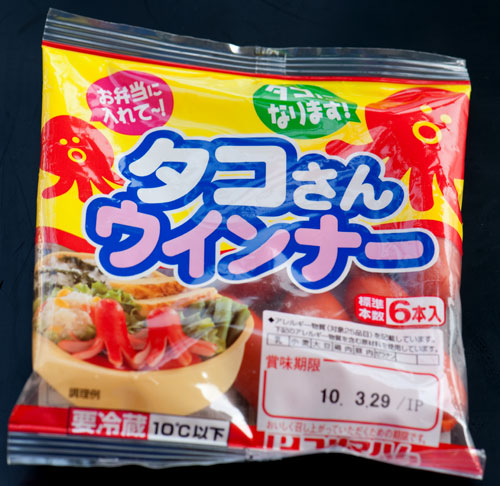
This is how they look straight out of the package.
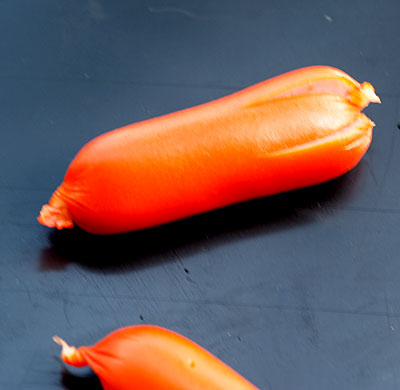
And, after a couple of minutes in a frying pan, this is how they are transformed. They even have eye-holes.
The taste? Well…they look about as good as they taste, and vice versa. I cooked them in a dry (non-oiled) frying pan. The oil and that red stuff came out of the sausages.
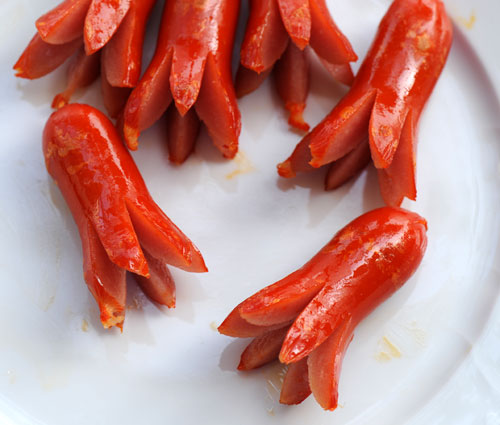
Do Japanese moms (or wives, or dads) make bentos entirely out of these ready-made components? Probably not, but the fact that so many of these things are available shows that there is a demand for them. In fact, companies like Ajinomoto (maker of many frozen foods) regularly popular charaben bloggers to make bentos featuring their products.
So, the next time you read somewhere that all Japanese mothers spend hours lovingly creating homemade, healthy bentos in the morning…you’ll know that that’s not always the case.










































 Photo:July 3, 2006(Left, Right).
Photo:July 3, 2006(Left, Right).
 These flowers are seen anywhere, at home gardens, in parks, at roads, in farms, in mountains etc. in each season in Japan.
These flowers are seen anywhere, at home gardens, in parks, at roads, in farms, in mountains etc. in each season in Japan.



















































































 These flowers are seen anywhere, at home gardens, in parks, at roads, in farms, in mountains etc. in each season in Japan.
These flowers are seen anywhere, at home gardens, in parks, at roads, in farms, in mountains etc. in each season in Japan.


























































































































































































































































 Below are the list of Spring's Fish Photos
Below are the list of Spring's Fish Photos















































